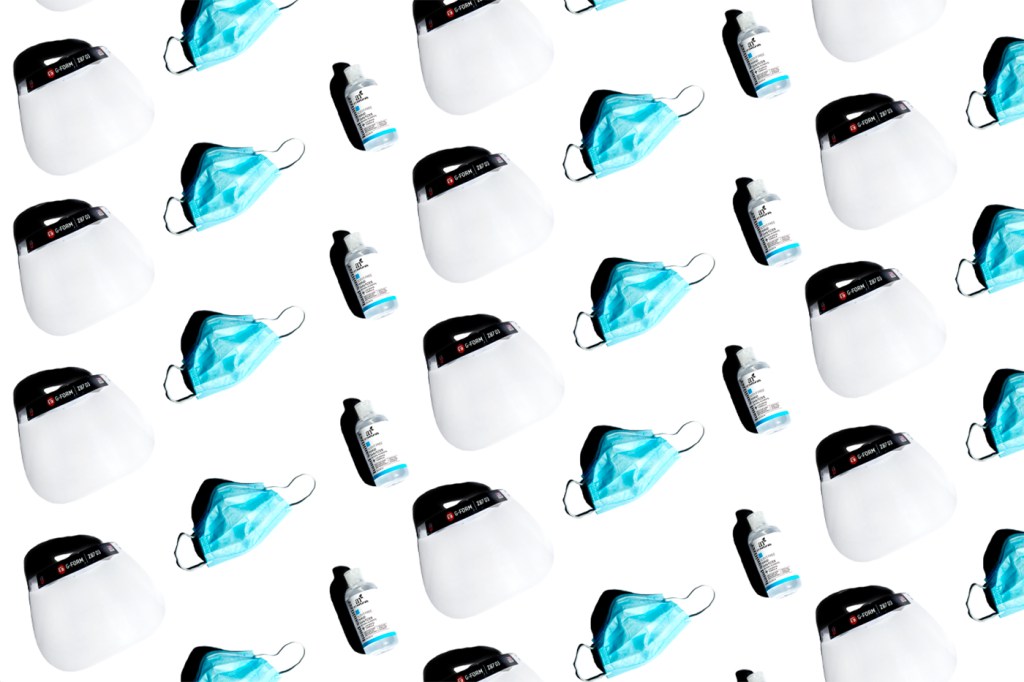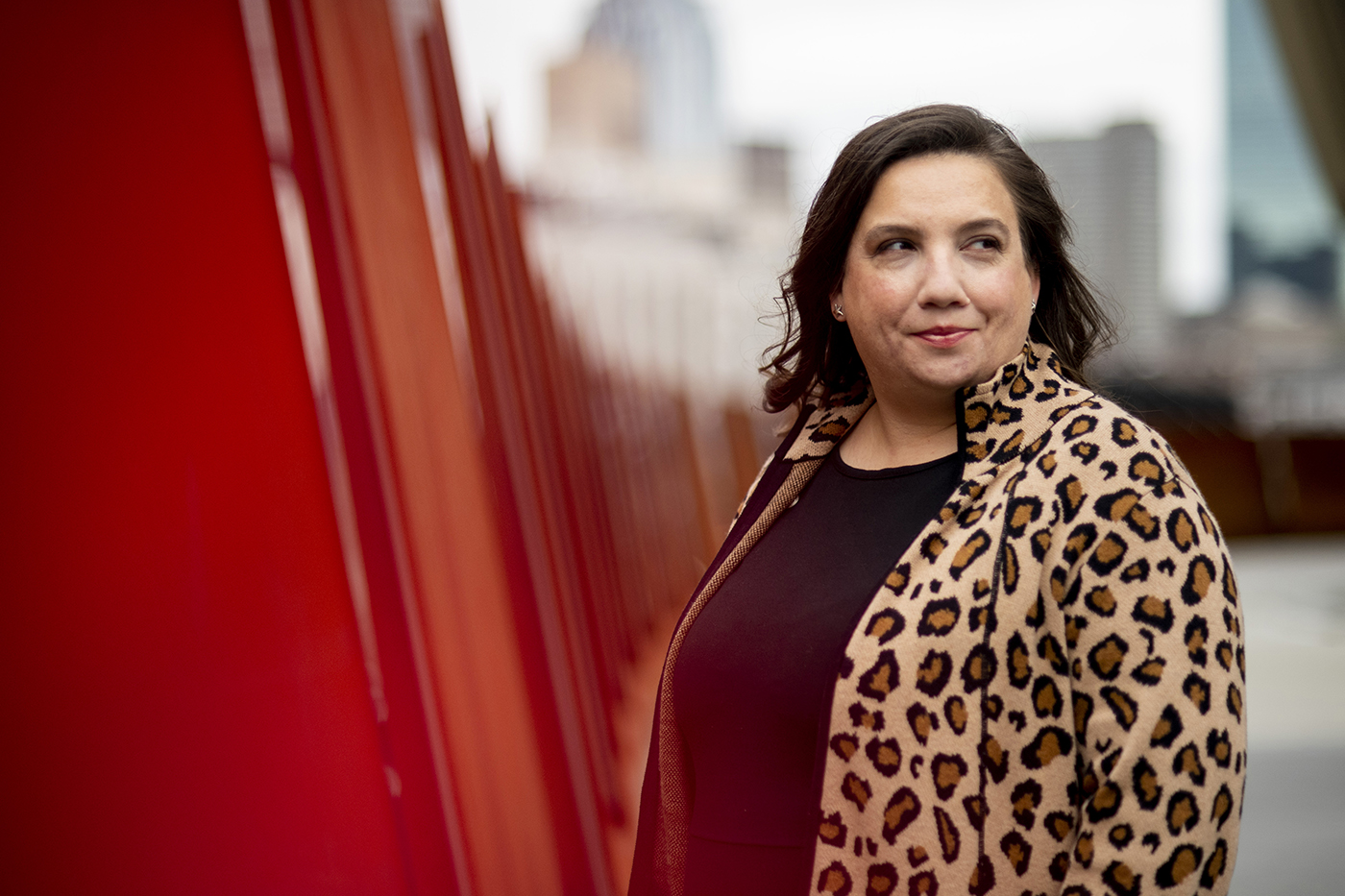Northeastern is prioritizing minority-owned businesses during the COVID-19 pandemic

Last spring, COVID-19 was infecting and killing people with no end in sight. Economies around the world were shutting down. At Northeastern, there was demand for personal protective equipment (PPE) that would enable its campus to reopen this fall.
Lindsay Dahlberg, associate director for procurement services at Northeastern, was trying to do more than simply get back to business in her search for masks, face shields, sanitizers, and other forms of PPE.
“The emergency took priority, but you have to do the best that you can do with what you have,” Dahlberg says. “If you find out that one of our suppliers in this field is an MBE (minority business enterprise) and they’re doing an awesome job? Of course you should prioritize them, of course you bring them to the top and push business their way, because they’re at a disadvantage—especially when there’s a pandemic.”

On Thursday, Dahlberg will be honored by the Greater New England Minority Supplier Development Council. On behalf of Northeastern, she will accept the “Institution of Higher Learning” award for continuous commitment to supplier diversity and support of minority-owned businesses.
Northeastern’s relationships with minority-owned businesses provide mutual benefit, says Gordon Thompson, president and chief executive officer of Westnet, a Massachusetts-based distributor of medical and surgical supplies and equipment, life science products, and industrial paper. Thompson says that Northeastern has spent more than $2.5 million on Westnet’s protective outerwear, culture tubes that are used for testing, and other products associated with the fight against COVID-19.
“Northeastern is heavily invested in combating, controlling, and monitoring COVID-19, and they’ve needed a voluminous amount of supplies in order to achieve that objective,” says Thompson, a double Husky who holds an undergraduate accounting degree and an MBA from Northeastern. “One of the things you cannot do as a diverse business is to rely on your minority status as a means of penetrating any market. You have to run your business color-blind.”
Dahlberg was raised with a sense of empathy. She grew up hearing stories of the plights her family faced in the Boston neighborhood of Roxbury, a community near Northeastern.
“I have mixed race in my family,” Dahlberg says. “I appear completely white and so does everyone in my family, so nobody knows any different. But because my great-grandparents and grandparents were speaking Spanish and living in Roxbury, they changed their names and they married white people so that they could have kids that could get jobs and have a good life.
“That shouldn’t be the reality. People should never have to worry about that.”
Dahlberg tells a family story that predates her: In the 1950s, Dahlberg’s aunt, who was two years old at the time, died while walking a shortcut across the metropolitan train tracks that pass through Northeastern. She sat on the rail to fix her shoe and her family couldn’t rescue her in time. The driver of the train was initially charged with murder, says Dahlberg, citing an old newspaper article.
“I just think to myself, ‘I can’t imagine being that driver,’” Dahlberg says. “It’s just so sad. If there had been a pedestrian walkway back then, this would not even be a conversation. But there was no walkway because they didn’t treat that community well.”
Dahlberg was a baby when her father, who was beginning his career in the nascent digital industry, moved the family to Silicon Valley.
“My dad was trying to chase this dream of being an executive, even though he had no college education,” Dahlberg says. “He would take us on every trip that he had for business. We went all over the place and, as he moved up the ranks, we were going to foreign countries.
“I got to sit in on a meeting in Philadelphia where Bill Gates was speaking in the 1990s, when Microsoft was elevating itself. Who gets that opportunity, right? I think I was 13 years old. I was watching how business takes place. And I always found it really exciting to know why people did what they did.”
Throughout the pandemic, Dahlberg and her staff have insisted on looking out for others. Northeastern’s budget for purchasing orders is more than $600 million annually, she says, but the university doesn’t automatically pursue the lowest price.
“We have a lot of flexibility with who we choose to be a preferred vendor,” Dahlberg says. “It has to be the right fit for Northeastern. As much as I would love to always get the lowest cost, we are balancing cost savings with questions of how are we going to support our neighborhoods and our communities.”
Dahlberg knows a lot about supporting people. Six years ago, while she was pregnant with her first child, Dahlberg and her husband, a veteran of the Afghanistan war, adopted two daughters. The eldest, 19, is now an N.U.in student in Ireland.
In addition to procuring goods and services for Northeastern during the pandemic, Dahlberg has spent the past year home-schooling her three eldest daughters while also caring for her two-year-old.
“The whole search for PPE helped me figure out a lot of reasons why I was doing things,” Dahlberg says. “Northeastern is basically a city in itself—but we have to take it up a notch, because we’re responsible for all of the people in it. We’re taking care of the accommodations where people live, we are facilitating restaurants and food services, and we’re creating a culture.”
For media inquiries, please contact media@northeastern.edu.






